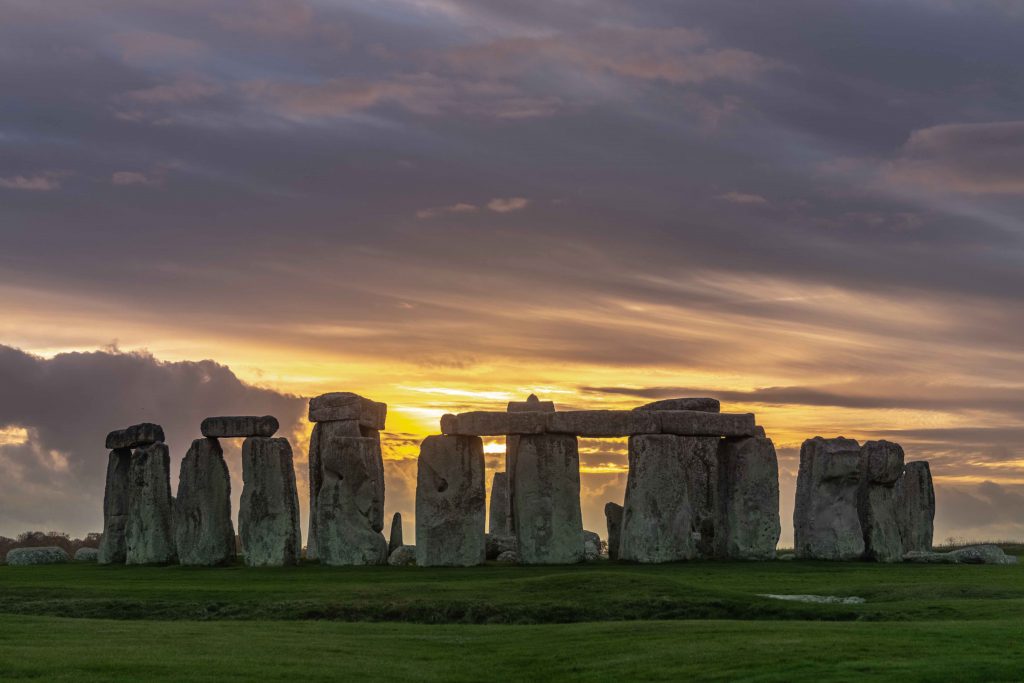The 2021 Census has revealed Cardiff is home to a variety of minority religious identities
THE diversity of religions being practiced in Cardiff has been revealed in detail by the 2021 Census.
The number of Christians in the city is 138,885 – at 38% that’s lower than the national average of 43% – but as the nation’s capital, it is perhaps unsurprising that Cardiff is the most religiously diverse part of Wales.
But it is not just the major religions that are represented in the multicultural melting pot of Cardiff – even if some religions have less than 10 followers here.
Here are 10 of the more unusual or lesser known religions identified in Cardiff by the Census.
10. Scientology – 6 followers

Possibly the most sensational religion on this list, Scientology is the religion of many famous faces such as the late Cheers actress Kirstie Alley and Top Gun star Tom Cruise.
Scientology is a relatively new religion that originated in the United States of America. The first Church of Scientology opened in 1954, Los Angeles.
The religion was founded by L. Ron Hubbard, an American author who in the 1950s published a series of books, his first, called Dianetics: The Modern Science of Mental Health. According to Hubbard, Dianetics analyses a person’s mentality looking at the way you think, your self-confidence and your courage as a person.
Hubbard’s aim was to train people in his ‘auditing’ techniques and in essence transform a person’s mental and physical approach to life. The ultimate goal of Scientology is being able to achieve “true spiritual enlightenment and freedom for all.”
Scientology claims to be a religion offering a precise path to understanding one’s true spiritual nature, the material universe, the spiritual universe and the Supreme Being.
9. Shintoism – 8 followers

Shintoism, also known as Shinto, is indigenous to Japan and dates back to the Jomon period approximately 3,500-16,500 years ago.
Shinto is rooted in ancient Japanese beliefs and has no known founder. Instead Shintoism is described as natural beliefs developed among ancient Japanese people.
In Shinto, God is seen in everything, especially within nature. This element of the religion is known as Animism. It is the belief that all things within the universe have a spiritual essence and should be worshiped as such.
8. Zoroastrianism – 26 followers
This is one of the world’s oldest monotheistic religions, founded in Iran over 3,500 years ago by the Prophet Zoroaster. Zoroastrians believe there is only one God and creator, known as Ahura Mazda, which translates as Wise Lord.
Between 1502-1736 under the Safavid Dynasty in Iran there was a state endorsed persecution of the Zoroastrians.
In more recent decades there has been a growth in the religion after the Iranian revolution in 1978. As of today, Zoroastrianism is one of the smallest religions in the world.
7. Alevism – 27 followers
Originating in Turkey in the 10th century, Alevism is the largest minority religion in the state, making up around 25% of the Turkish population.
Technically, Alevism is a branch of Shi’a Islam but the religion differs considerably in their practice and interpretation of Islam. For example, Alevi’s follow Ali, the brother-in-law of Prophet Muhammed, and believe in the humanistic ideals of love and tolerance expressed through mystical poems instead of strict rules.
6. Taoism – 36 followers
Taoism, pronounced Daoism in English, is rooted in Chinese philosophy and religion. Developed during the sixth century, Taoism has strongly influenced Chinese customs and practices.
The religion focuses on the Tao, translated as ‘The Way’, which is interpreted to mean that all things in the universe is connected to the Tao.
Taoism is a religion of unity and opposites, known as Yin and Yang, the principle that the world is filled with complimentary differences.
Taoists, like many of the other religions in this list, believe in spiritual immortality, where the spirit of the body joins the universe after death.
5. Jainism – 40 followers
Jainism is one of the three ancient religions of India. Much like Hinduism and Buddhism, Jainism preaches that the path to enlightenment is through nonviolence and that one’s karma can determine their reincarnation cycle of birth, death, and rebirth.
Jainism teaches the ethical principle of Ahimsa, which in its literal translation means to be ‘without harm’. Today, many Jains will live by Ahimsa through their diets, such as vegetarianism to avoid harming other living creatures and in turn reduce one’s bad karma.
4. Baha’i – 43 followers
The Baha’i Faith originated in Iraq in the 19th century and was founded by Mirza Hosanna Ali Nuri, who is known as Baha Allah, which in Arabic means ‘Glory of God’. Baha Allah is one of the divine messengers and his writings are central to the Baha’i religion.
In this religion it is believed that all messengers of the world’s greatest religions have been manifestations of God. So despite some cultural or ideological differences all of these religions teach an identical truth of God.
3. Satanism – 50 followers

Satanism is arguably a religion designed in defiance of traditional faiths.
The term “Satan” was first introduced in Numbers 22:22 of the Old Testament and is used to describe a defiant being. Infamously, Satanism has been associated with devil-worshiping and the belief in a Judeo-Christian Devil.
Founded by Anton LaVey in the 1960s, the Church of Satan described themselves as “the first above-ground organisation in history openly dedicated to the acceptance of man’s true nature”.
In the Church’s Nine Satanic Statements, Satan is said to represent “kindness to those who deserve it” and “vengeance instead of turning the other cheek”.
Today, The Satanic Temple organisation is the most active and publicly known religious organisation that practises Satanism. The Temple states that its purpose is to “encourage benevolence and empathy, reject tyrannical authority, advocate practical common sense, oppose injustice, and undertake noble pursuits”.
2. Spiritualism – 472 followers
According to the Spiritualists’ National Union: “Spiritualism is a religion that embodies the main ideas of all religions, that there is a life after death, immortality and the existence of a God”.
Spiritualists believe that human souls are immortal, meaning that after the physical being passes away, the soul lives on.
Mediums, commonly called psychics, are people who claim they can communicate with the dead and can act as a mediator between physically deceased and living human beings. In spiritualism mediums play an important role in providing evidence of spiritual immortality.
1. Paganism – 644 followers
(Includes Druids, Wiccans, Shamans, Heathens and Witchcraft)

The most popular religion on this list in Cardiff is Paganism.
Rooted in a pre-religious ancient Europe, denominations of Paganism include Wiccans, Druidry, Shamanism, Heathenism, Witchcraft and even Greek mythology.
Most pagans, like many other faith groups, believe in some form of reincarnation, viewing death as a transition within a continuing process of existence.
Pagans believe that nature is sacred and that the natural cycles of birth, growth and death in the world around us carries significant spiritual meaning. Human beings are seen as part of nature, alongside animals, trees, stones and plants.
In the UK, Paganism is commonly associated with Stonehenge. This is a prehistoric monument in southern England built between 3,500 to 5,000 years ago. Famously, Pagans flock to Stonehenge twice a year to partake in the Solstice ceremonies which are said to honour and celebrate the life cycles.



